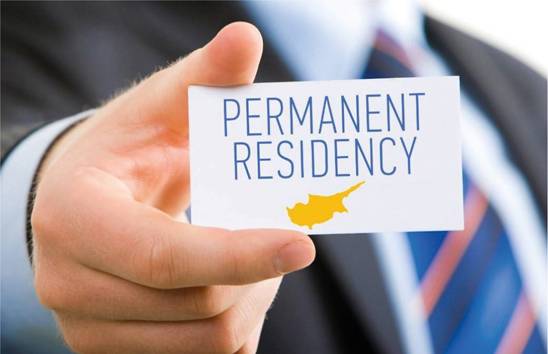Moving to Spain is an exciting opportunity, but without the right advice from a Spanish immigration lawyer, the process can quickly become overwhelming. Many expatriates relocating to Spain encounter avoidable challenges, from securing the correct residence permit to understanding local laws and cultural differences. At Marfour International Law Firm, we specialize in providing expert guidance to newcomers. Our legal team offers clear and professional advice on residence permits, legal documentation, and the practical aspects of settling into Spanish life. With the right legal support, you can avoid common pitfalls and ensure a seamless transition to your new home in Spain.
Advice from a Spanish Immigration Lawyer for Expats Moving to Spain
Moving to Spain can be a life-changing experience, but without proper preparation, it could lead to unnecessary challenges. Here’s key advice from a Spanish immigration lawyer to help ensure a smooth transition to life in Spain.
Secure the Right Residence Permit
Before moving, make sure you have the right residence permit. Different permits apply based on your situation, whether you’re moving for work, study, or investment. Some permits must be applied from your home country, while others can be done once in Spain. Consulting with an immigration lawyer helps avoid mistakes and delays.
Learn Basic Spanish for Better Integration
While English is spoken in some areas, learning Spanish is essential for smooth daily life. Whether it’s shopping, handling paperwork, or socializing, knowing basic Spanish helps you integrate and avoid miscommunication. Consider taking a language course to build your skills before or after your move.
Register for Empadronamiento to Access Services
Registering at your local town hall (Empadronamiento) confirms your residency and is necessary to access public services like healthcare. This step is required for various legal processes, so make sure to complete it early to avoid complications.
Embrace the Spanish Lifestyle
Spain’s lifestyle can be a bit different from what you’re used to. Spaniards prioritize leisure and socializing, often with flexible schedules. Embrace this slower pace of life to better integrate and enjoy your new home.
Work with Experts for Residency and Legal Matters
Navigating the immigration system in Spain can be complex. Hiring a Spanish immigration lawyer ensures that your application process is smooth and complete, helping you avoid costly mistakes. Legal experts can guide you through residency applications and other important processes.
By following these steps and consulting with an immigration lawyer, you can enjoy your new life in Spain with fewer hurdles and more peace of mind.
Why Securing the Right Residence Permit is Crucial for Your Move to Spain?
Securing the correct residence permit is one of the most important steps when moving to Spain. It determines not only your legal status in the country but also affects your ability to work, live, and access various services. Here’s why getting it right from the start is crucial for your move.

Different Permits for Different Purposes
Whether you’re moving for work, studies, or investment, Spain has different residence permits depending on your purpose for being there. Some permits, such as the work or student visa, have specific requirements that must be met before you even step foot in Spain. Understanding which permit applies to you can save time and avoid complications later.
Avoid the Risk of Legal Issues
Without the correct residence permit, you could face fines, deportation, or trouble accessing basic services. It’s crucial to ensure you meet all the necessary legal requirements for your stay in Spain. A misstep here could significantly delay or even jeopardize your plans to live in the country.
Residency Permit Requirements Vary
The process to secure a residence permit can vary depending on your nationality and the type of permit you are applying for. For instance, the Golden Visa allows for in-country applications, while other permits, like those for employment, may require you to apply from your home country. Working with a Spanish immigration lawyer can help you navigate the specific requirements based on your situation.
Prepare for Paperwork and Documentation
Residency applications often require a lot of paperwork, from proof of income to health insurance. Preparing these documents in advance makes the process smoother and faster. Having an expert to help you gather the correct paperwork can save you time and frustration.
Long-Term Benefits of Proper Residency
Securing the right residence permit is not just about getting into Spain—it sets you up for long-term success. Once you’re legally residing in Spain, you can apply for family reunification, work permits, and even citizenship in some cases. Having the right permit from the start opens up these opportunities.
In conclusion, securing the right residence permit is essential to ensure your move to Spain is legal, smooth, and successful. It provides a foundation for your new life in Spain and avoids potential legal issues down the road. Working with an immigration lawyer can help simplify the process and make sure you’re fully prepared for the journey ahead.
Importance of Learning Basic Spanish for a Smooth Transition
Learning basic Spanish is a crucial step in making your move to Spain easier and more enjoyable. Although English is spoken in larger cities, having a basic understanding of Spanish will help you feel more confident and make daily life much simpler.
Easier Navigation in Daily Life
From grocery shopping to dealing with local services, knowing some Spanish makes everyday tasks much easier. Being able to ask for help, order food, or find your way around will allow you to feel more independent and less reliant on others. It can also help you avoid frustration when things don’t go as expected.
Building Stronger Connections
While many people in Spain can speak some English, especially in touristy areas, learning Spanish will allow you to connect more genuinely with locals. Speaking the language shows respect for the culture, and it opens up more opportunities to make friends and create meaningful relationships with the people around you.
Understanding Important Documents
When moving to a new country, you will come across various legal documents, including contracts, rental agreements, and official forms. These are usually in Spanish, and not understanding them could lead to confusion or costly mistakes. By learning the language, you can confidently navigate these documents and ensure you are fully informed about what you’re agreeing to.
Adapting to Spanish Lifestyle
Spain has a unique way of life, and speaking the language is key to understand and embrace the culture. Whether it’s chatting with neighbours, understanding local humor, or participating in social events, basic Spanish will help you feel more at ease and integrate into the community more smoothly.
Boosting Career Opportunities
Knowing Spanish can open many doors in your professional life. Many jobs in Spain require at least a basic level of Spanish, especially if you plan to work with local customers or teams. Being able to speak the language not only makes you more marketable but can also help you build relationships in the workplace and move ahead in your career.
In conclusion, learning basic Spanish is essential when settling in Spain. It makes it easier to manage daily activities, connect with others, understand legal documents, embrace local culture, and enhance your career prospects. Taking the time to learn the language will improve your experience and help you feel more comfortable in your new environment.
How to Adapt to Spanish Culture and Embrace Local Customs?
Making the move to Spain can be one of the most exciting experiences of your life. From the food to the festivals, Spain offers an unique cultural blend that is unlike anything you have experienced before. But if you are going to truly enjoy life here, it’s important to know how to adjust to the Spanish way of life. It’s not just about speaking the language or knowing the laws—it’s about fitting in with the rhythms of daily life. Here is how you can make the most of your new life in Spain.

Adjust to the Spanish Work-Life Rhythm
One of the first things you’ll notice in Spain is the way people balance their work and personal life. Spaniards value their free time, and work isn’t their top priority all the time. The workday is often divided by a long lunch break (sometimes up to two hours) to recharge for the rest of the day. This slower pace can be a bit of a shock at first, especially if you’re used to a faster-moving work environment. However, embracing this relaxed rhythm is key to settling in and appreciating the lifestyle here.
Get Involved in Local Celebrations and Traditions
In Spain, life revolves around festivals and traditions. From the famous bull runs in Pamplona to the flamenco dancing in Seville, there’s always something going on. Spaniards love to celebrate, and joining in on these events is one of the best ways to experience the heart of Spanish culture. Even if you’re not fluent in Spanish, these festivals are a great way to bond with locals and immerse yourself in the lively spirit of the country.
Adapt to Spanish Meal Times
Another cultural difference you will quickly pick up on is the meal schedule. While breakfast is often light (think coffee and toast), lunch is the big meal of the day, typically served around 2 p.m. or 3 p.m. Dinner, on the other hand, doesn’t begin until 9 p.m. or even later! This can feel like a challenge at first, especially if you’re used to eat earlier. But, once you will get used to it, you will find that this late schedule creates plenty of time to socialize and relax before the meal.
Embrace Social Interactions and Close Friendships
Spaniards are known for their friendly nature, and they value face-to-face interaction. A quick conversation can turn into a long chat, and it’s common to spend time just talking and enjoying each other’s company. You will find that people are often very direct and open, which can be refreshing compared to the more reserved nature of other cultures. Being willing to join in and enjoy social activities—whether it’s an afternoon coffee or a weekend barbecue—will help you feel more connected to the community.
Respect the Importance of Family
In Spain, family is the cornerstone of society. You’ll see people gathering for meals, holidays, and weekend outings—sometimes with three generations of family members in tow. As an expat, embracing the importance of family life is crucial. Whether you’re invited to a family dinner or a local festival, showing that you respect these close-knit ties will go a long way in helping you build strong relationships with locals.
Don’t Rush Things—Embrace the Slow Pace
If you’re used to a fast-paced environment, you may find that things in Spain move a little slower. Everything, from government services to business meetings, often takes a bit longer than you might expect. While this can be frustrating, it’s part of the culture. Spaniards aren’t in a rush, and they generally don’t mind taking their time with things. Adapting to this slower pace will help you adjust more smoothly and avoid unnecessary stress.
Get Involved with the Local Community
Lastly, getting involved with the local community will help you integrate faster. Spain is known for its vibrant social life, and joining in can be as simple as attending a neighborhood event, joining a fitness class, or volunteering. There are plenty of ways to meet new people, and by doing so, you’ll start to feel more at home. Plus, it’s a great way to practice your Spanish and pick up new local customs.
By embracing the slower pace, getting involved in celebrations, and respecting local traditions, you’ll soon find yourself adapting to Spanish life and enjoying all it has to offer. Remember, the more open you are to the culture, the easier your transition will be. If you’re looking for expert legal advice or help with residency applications, Marfour International Law Firm is here to guide you through every step of your relocation to Spain.
Why Renting Before Buying Property in Spain is a Wise Decision?
When it comes to moving to Spain, many expats dream of buying their own piece of property as soon as they settle in. While the idea of homeownership can be tempting, it’s important to approach this decision with caution. Renting before buying is often the smarter move for newcomers to Spain. Here’s why it’s a good idea to test the waters before committing to a property purchase.

Get a Feel for the Neighborhood
Spain is a country of diverse regions, each with its own unique charm and lifestyle. Whether you’re drawn to the busy streets of Madrid, the serene coastline of Costa Brava, or the laid-back vibe of a small village in Andalusia, each area offers something different. Renting gives you the flexibility to explore and discover the neighborhood that truly suits your lifestyle. You may think you want to live near the beach, but after experiencing the area, you might find you prefer the hustle and bustle of city life instead.
Test the Spanish Lifestyle and Logistics
When you rent, you’re essentially getting a trial period to see how well you adapt to Spanish living. From adjusting to local customs and language to navigating the legal and financial aspects of property ownership, renting allows you to ease into these changes without making a long-term commitment. It also gives you time to figure out the logistics, like transportation, proximity to work, and access to amenities—things that might not be obvious during a short visit.
Avoid Impulsive Decisions
Buying a property, especially in a foreign country, is a huge decision. It involves considerable financial commitment and comes with potential risks. For instance, the real estate market in Spain can fluctuate, and certain areas may not appreciate in value as expected. Renting first allows you to avoid making an impulsive purchase based on limited knowledge. By living in different areas, you gain insight into what truly matters for your lifestyle—whether that’s a quiet neighborhood or vibrant nightlife.
Understand the Property Market
The Spanish property market can be complex, with different regions offering different pricing, regulations, and market trends. Renting first gives you a chance to learn more about the market conditions in Spain before making any decisions. It’s an opportunity to understand the prices, what’s considered a good deal, and the rules surrounding property taxes, maintenance costs, and insurance. By the time you’re ready to buy, you’ll be better informed and more confident in your decision.
Save Time and Money
Renting before buying also allows you to avoid the financial strain of purchasing a property too quickly. Spain has additional costs when buying a property, including taxes, notary fees, and property registration. Renting can provide breathing room as you save for a future purchase and avoid rushing into a significant financial commitment that might not be right for you. Plus, if you decide that buying isn’t the right option, you can simply move on without the headache of selling a property.
Flexibility to Move
Lastly, renting offers flexibility. If you’re unsure about which area you want to settle in long-term, renting allows you to move without the hassle of selling a property. It’s also a good option if you’re still figuring out whether living in Spain permanently is the right decision. Should your circumstances change, renting provides an easy out without the financial and emotional commitment tied to homeownership.
Renting before buying property in Spain provides you with a valuable opportunity to learn about the local culture, test different areas, and make a more informed decision about your future. It offers flexibility, financial freedom, and peace of mind during your transition. When you’re ready to make that big leap into homeownership, you’ll be able to do so with confidence, knowing that you’re making the right choice for your lifestyle.
At Marfour International Law Firm, we’re here to help you every step of the way, whether you’re looking for guidance on property regulations or need expert advice on residency and legal matters.
FAQs
Why is renting first recommended before buying property in Spain?
Renting first allows you to explore different neighborhoods and get a feel for the Spanish lifestyle without committing to a property purchase. It gives you the flexibility to adjust to local customs, language, and logistical factors before making a major financial decision.
What are the risks of buying property too quickly in Spain?
Purchasing property too quickly can lead to buyer’s remorse if you haven’t fully understood the market, the area, or the lifestyle. You might end up in an area that doesn’t suit your needs or at a time when the real estate market isn’t favorable. Renting helps mitigate these risks.
How long should I rent before buying a property in Spain?
There’s no set timeline, but typically, a year or more is recommended. This gives you enough time to experience the area, learn the local customs, and understand the housing market before making a long-term commitment.
Can renting in Spain help me adjust to local customs?
Yes, renting provides you with the opportunity to live like a local. You’ll gain firsthand experience of daily life in Spain, which helps you adapt to cultural differences, such as meal times, social interactions, and work-life balance.
What should I consider when renting in Spain?
When renting, consider the location, nearby amenities, transport options, and the overall vibe of the area. It’s also important to familiarize yourself with rental agreements, utility costs, and the local property market to avoid any surprises when you decide to buy.
Conclusion
Renting before buying property in Spain gives you the chance to truly experience the area, understand the local lifestyle, and ensure the neighborhood suits your needs. It provides flexibility and time to make a well-informed decision, reducing the risks of committing to a property that might not fit your expectations. This approach helps you avoid potential financial losses, offering peace of mind as you settle into your new life in Spain.

